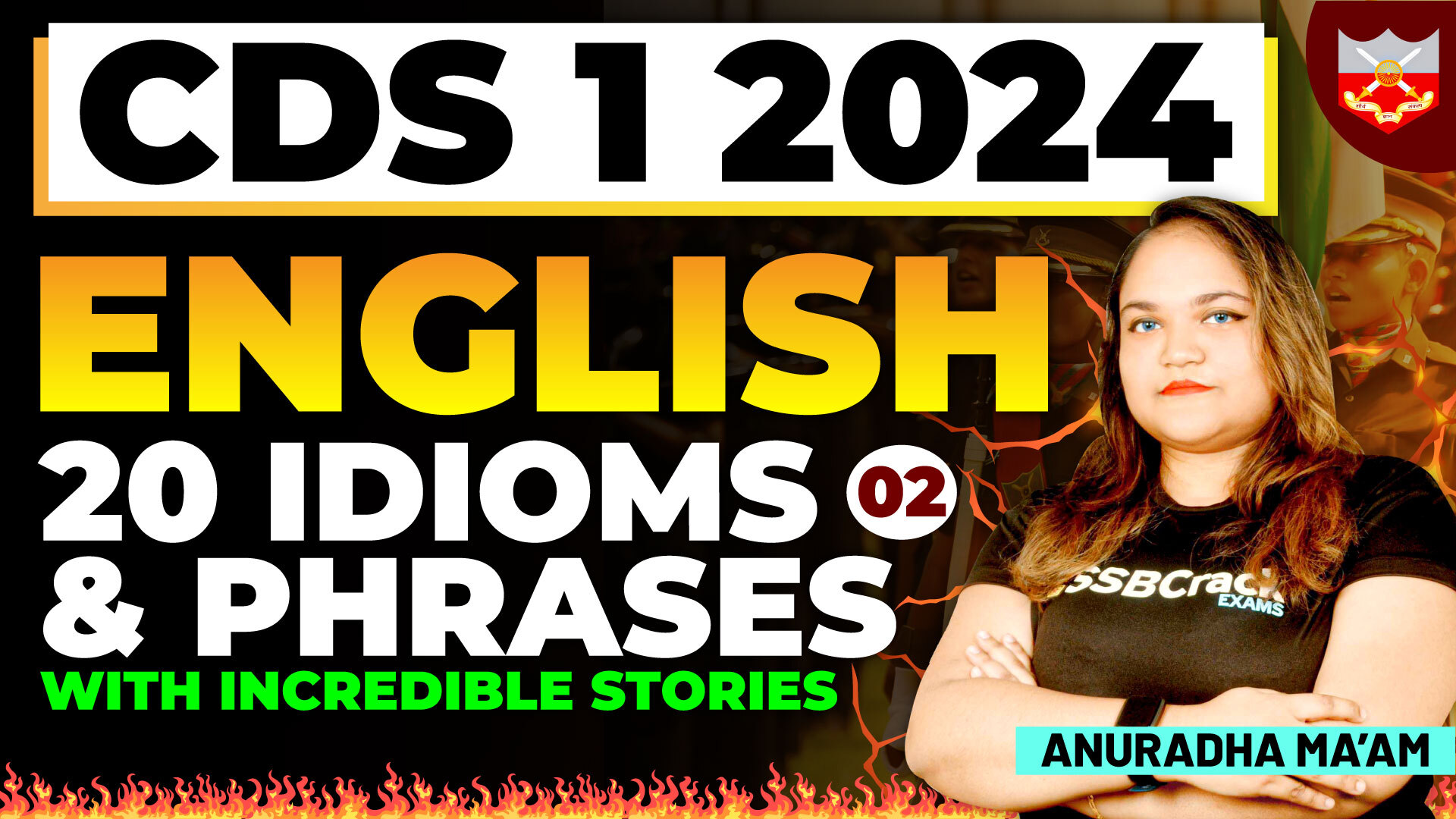The English paper of the CDS 1 2024 exam presents a myriad of linguistic challenges, with idioms and phrases being a prominent aspect. Mastering these expressions not only enhances language proficiency but also adds depth to communication skills. In this article, we unravel the fascinating origin stories behind common idioms and phrases, providing an engaging and memorable approach to learning for aspirants preparing for the CDS 1 2024 exam.
Ø Eat Humble Pie
•Meaning: To admit you were wrong or apologise
•Origin: In the 14th century during a post-hunt feast, the lord of the manor would eat the finest cuts of meat. The numbles was the name given to the heart, liver, and entrails of animals. By the 15th century this was shortened to ‘umbles. It was common practice for people of lower stature to be humiliated when served the ‘umbles baked into a pie. Thus, comes the term, ‘to eat humble pie’.
Ø Bottoms Up
•Meaning: Express friendly feelings towards one’s companions before drinking
•Origin: During the 18th and 19th centuries, English Navy recruiters would coerce London drinkers in dockside pubs to join the service. Accepting the ‘King’s shilling’ was proof that an agreement had been made to join the service. Dishonest recruiters would slip a shilling into the pint of a drunken man who wouldn’t notice until he had finished his beverage. The victim would then be dragged away and wake up on board a ship far out to sea, unaware of what had happened to him the night before. When drinkers and pubs became aware of the scam, they introduced tankards with transparent bases. Customers were reminded to lift the pint up and check the bottom for illicit shillings before they began drinking.
Ø Run Amok/ Amuck
•Meaning: Behave in an unruly manner
•Origin: This expression comes from the Malaysian word ‘amoq’. When translated literally it describes the behaviour of tribesmen who, under the influence of opium, became wild and attacked anybody in their path. During the 17th century, the phrase became popular in England when travellers would try to impress people with their knowledge of foreign cultures.
Ø The Writing Is On The Wall
•Meaning: A clear sign that something unpleasant is going to happen
•Origin: This phrase can be traced back to the Bible. In the Book of Daniel, God punishes King Belshazzar for indulging in a drunken revelry and degrading sacred temple vessels by using them as wine goblets. God sends this hand to write the words on the palace wall, which foretell Belshazzar’s downfall. Unable to interpret the message, Belshazzar’s sends for Daniel to interpret it. Belshazzar couldn’t see the obvious warning that was apparent to others because he was so engrossed in his sinful behaviour.
Ø Cost An Arm And A Leg
•Meaning: To be expensive
•Origin: The cost of having your portrait painted in the 18th century wasn’t based on how many people in the picture, but by how many limbs were to be painted. The cheapest option was to have only your head and shoulders painted. The price increased as the portrait became larger with the inclusion of arms. A top of the range portrait included the legs.
For more, check out 20 Idioms & Phrases With Most Incredible Origin Stories | Part 2 | CDS 1 2024 | UPSC
Conclusion
Understanding the origins of idioms and phrases not only makes learning them more enjoyable but also aids in retention and comprehension. Aspirants preparing for the CDS 1 2024 exam can leverage these captivating origin stories to enhance their understanding of idiomatic expressions and excel in the English section. By immersing themselves in the rich history behind these phrases, candidates can not only strengthen their language skills but also approach the exam with confidence and proficiency.







